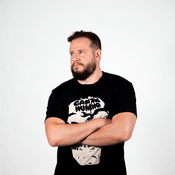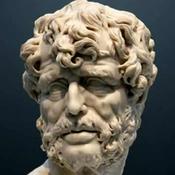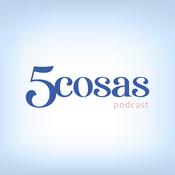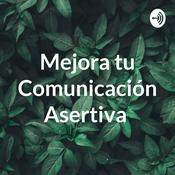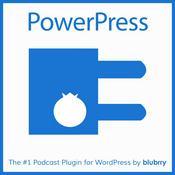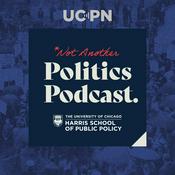212 episodios
- In today’s world, our brains are overloaded with information, making it hard to focus and remember. But what are the true limits of the human mind—and why do they exist? And why are some people seem so much better than remembering things than others? In this episode, we talk with with Edward Awh, a cognitive neuroscientist and professor of psychology at the University of Chicago. Whose lab studies how the brain controls focus, memory and attention.
His research explores the connection between attention and working memory, why our conscious awareness is far more limited than it feels, and what those limits mean for life in an information-saturated world. He explains what we can actually do to improve our memory—including one easy thing we can all do every day—and how using the “remote control of your mind” could help you focus your attention, given the limited space in our brains.
Hosted by Simplecast, an AdsWizz company. See pcm.adswizz.com for information about our collection and use of personal data for advertising. - The process of understanding who we are is a lifelong journey for many of us. For two decades, that question has been one that University of Chicago scholar Eric Oliver has asked his students in class—and inspired him to write a new book called "How to Know Your Self: The Art & Science of Discovering Who You Really Are."
A renowned political scientist, Oliver draws upon science, philosophy, psychology and his personal experiences to better examine the mysteries of the human experience—and explore what it truly means to be “you.”
Hosted by Simplecast, an AdsWizz company. See pcm.adswizz.com for information about our collection and use of personal data for advertising. - What if we could precisely measure a cell at its most fundamental level? In this episode, we talk with the University of Chicago scientist Peter Maurer about how he and his colleagues made the breakthrough discovery of turning a protein found in living cells into the first biological quantum bit, also known as a qubit.
Maurer explains how quantum systems—once thought to be too fragile for real-world use—are becoming some of the most powerful sensors ever built, and what they could teach us about the brain, the body and more.
Hosted by Simplecast, an AdsWizz company. See pcm.adswizz.com for information about our collection and use of personal data for advertising. - We've all heard the phrase "Manifest Your Destiny" when it comes to wanting a new promotion, figuring out a new career path or just trying to achieve that long-term goal. It turns out that the act of manifestation is not merely pseudoscience—it actually has a body of research in neuroscience to back it up.
James Doty was a clinical professor of neurosurgery at Stanford University, and founder and director of the Center for Compassion and Altruism Research and Education. He wrote several books, including Mind Magic: The Neuroscience of Manifestation and How It Changes Everything.
Hosted by Simplecast, an AdsWizz company. See pcm.adswizz.com for information about our collection and use of personal data for advertising. - The internet and social media have transformed the way in which we hear and understand music today—and online communities and platforms from YouTube to TikTok have changed how music circulates and ultimately goes viral. Why do some pop stars have more success creating hit songs and building online following than others?
In this episode, we speak with Paula Clare Harper, a musicologist and assistant professor at the University of Chicago. Harper co-edited the book Taylor Swift: The Star, The Songs, The Fans, which explores the online musical cultures that produced and propelled the image of megastar Taylor Swift. Harper unpacks how gendered narratives around "the fangirl" continue to influence which musical practices we take seriously—and how studying music on the internet helps us understand contemporary cultural power.
Hosted by Simplecast, an AdsWizz company. See pcm.adswizz.com for information about our collection and use of personal data for advertising.
Más podcasts de Educación
Podcasts a la moda de Educación
Acerca de Big Brains
Big Brains explores the groundbreaking research and discoveries that are changing our world. In each episode, we talk to leading experts and unpack their work in straightforward terms. Interesting conversations that cover a gamut of topics from how music affects our brains to what happens after we die.
Sitio web del podcastEscucha Big Brains, FIESTA PARA DAÑADOS y muchos más podcasts de todo el mundo con la aplicación de radio.net
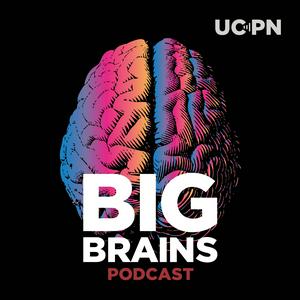
Descarga la app gratuita: radio.net
- Añadir radios y podcasts a favoritos
- Transmisión por Wi-Fi y Bluetooth
- Carplay & Android Auto compatible
- Muchas otras funciones de la app
Descarga la app gratuita: radio.net
- Añadir radios y podcasts a favoritos
- Transmisión por Wi-Fi y Bluetooth
- Carplay & Android Auto compatible
- Muchas otras funciones de la app


Big Brains
Escanea el código,
Descarga la app,
Escucha.
Descarga la app,
Escucha.




